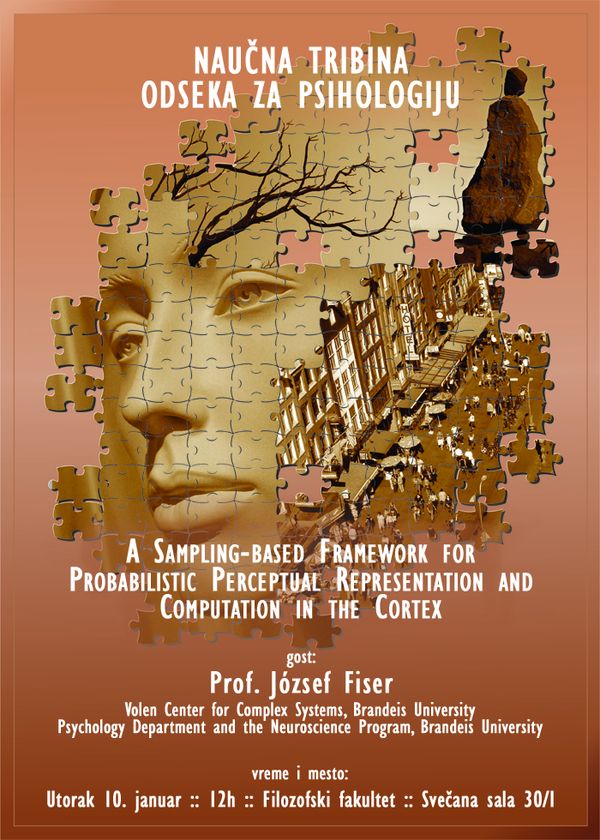| |
Početna > Vesti>
U utorak, 10. januara, u 12h, u Svečanoj sali Filozofskog fakulteta gostuje:
Prof. Jozsef Fiser
Brandeis University, USA.
Govoriće na temu:
A Sampling-based Framework for Probabilistic Perceptual Representation and Computation in the Cortex
Svi ste dobrodošli!
Abstract:
The mind's internal representations of its environment have a crucial role in the emergence of intelligent behavior, yet there are few concrete proposals about the nature of these internal representations or the way they are acquired. Using the domain of visual recognition, I will present a framework and a combined empirical-computational program that explore these issues. First, I will demonstrate that in everyday perceptual tasks humans process not only the sensory information but also their uncertainty about that information, and they do this in a theoretically optimal manner. As such behavior assumes a probabilistic internal representation of the world, I present evidence that indeed, adults and infants develop such representations when they face a novel visual environment. I will show how this framework can cover not only low-level statistical regularities of events and features, but also more complex abstract "rules" of the sensory world, as well as internal models of higher cognitive functions. Next, I turn to the issue of whether the implementation of such representations and computations is feasible in the brain. I will outline how probabilistic internal representations could be implemented in the cortex in a sampling-based manner, and how this can explain a wide range of puzzling observations such as illusions and dreams, as well as the recorded high level of spontaneous activity in the brain. I provide confirmation of this framework by demonstrating that as young animals grow, the visually evoked and spontaneous activity in their brains becomes statistically similar, indicating how their internal model gets tuned to the structure of their environment. If time permits, I will outline how the proposed framework can answer the new challenges it faces. I will conclude that this framework offers a rigorous approach to exploring empirically the structure of internal representations in the mind and it might provide a surprisingly comprehensive answer to the age-old question of subjectivity.

|
|



